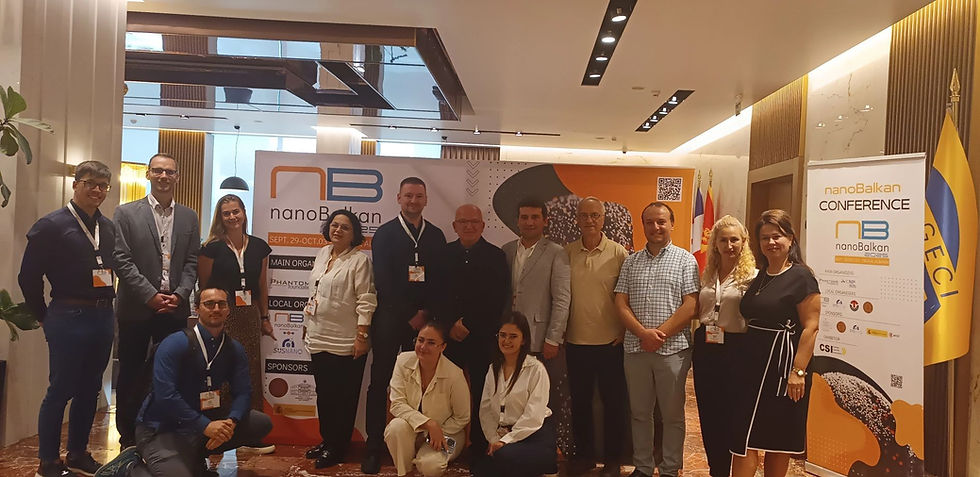Albanian Researchers Advance in Nanotechnology with ICN2 Training Programme
- Olga Seliviorstova
- Jul 7, 2023
- 1 min read
Updated: Mar 11, 2024
Four experienced researchers from the University of Tirana have recently completed an advanced training programme at the Catalan Institute of Nanoscience and Nanotechnology (ICN2). This initiative, aimed at promoting expertise in state-of-the-art biosensor technology, signifies a key collaboration in nanotechnology research.
Besnik Baraj focused on utilising inkjet printing for electrochemical biosensors and developing Aptasensors, DNA-based sensors crucial for bioanalytical applications. His work included enhancing detection methods for environmental pollutants using screen-printed electrodes modified with gold nanoparticles and graphene oxide, as well as exploring lateral flow biosensors for clinical diagnostics.
Loreta Vallja concentrated on modifying carbon-based sensors and applying functionalised graphene derivatives to create paper-based analytical devices. Her research aimed at advancing the detection of environmental pollutants and producing highly conductive inks for inkjet and screen-printing technologies.
Majlinda Vasjari's training paralleled Vallja's, with a focus on producing conductive inks and modifying carbon-based sensors for the detection of heavy metals and antibiotics. She also worked on fabricating paper-based analytical devices and mastering sensor production techniques.
Nevila Broli engaged in learning inkjet printing techniques for electrochemical biosensors, designing Aptasensors, and developing sensitive methods for environmental monitoring using nanomaterial-enhanced screen-printed electrodes.
This collaboration highlights ICN2's dedication to fostering international scientific talent, equipping the researchers with innovative methods to address environmental and health challenges. Their contributions are expected to significantly impact environmental monitoring and clinical diagnostics.








Comments